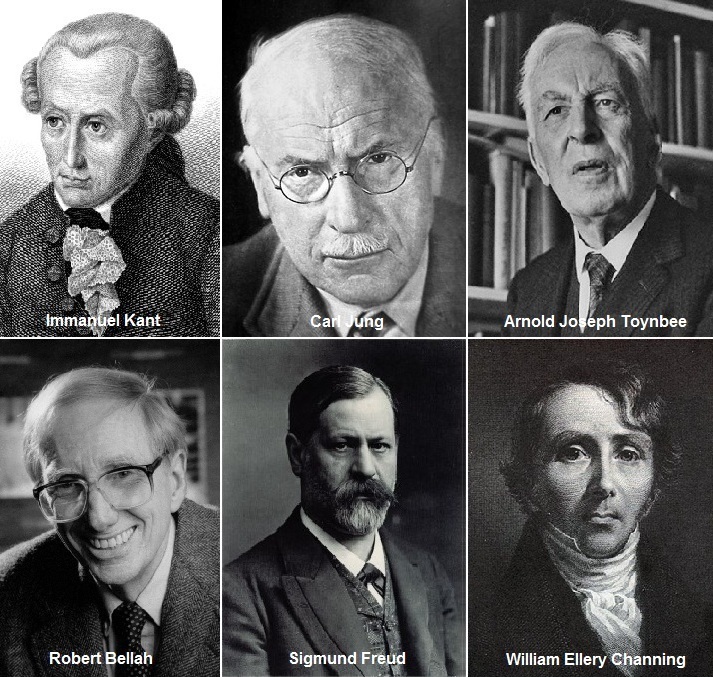The exploration of religion through the lenses of great thinkers has been a profound pursuit within the realms of philosophy, sociology, and theology. This examination yields diverse perspectives, each contributing to a richer understanding of the essence of religion itself. The Baha’i teachings encapsulate these reflections, offering a synthesis of the ideas put forth by eminent philosophers and scholars. Thus, the Baha’i perspective on how great thinkers defined religion serves as a compelling narrative that enhances our comprehension of the multifaceted nature of spiritual belief systems.
To embark on this intellectual journey, one must first delineate the fundamental characteristics that define religion according to various thinkers. Philosophers such as Friedrich Nietzsche, Karl Marx, and Emile Durkheim have articulated distinct interpretations, each emphasizing different dimensions of religious experience. Nietzsche famously posited that religion serves as a mechanism for the projection of human values, while Marx viewed it as an opiate that dulls the realities of socioeconomic oppression. Durkheim, on the other hand, presented religion as a social construct that functions to create cohesion among individuals within a community. These diversified viewpoints inspire an examination of how Baha’i teachings resonate with or diverge from such interpretations.
Firstly, let us consider the essence of religion as viewed through a Baha’i lens. Central to Baha’i belief is the notion of the oneness of humanity. Great thinkers often grappled with the concept of individualism versus collectivism, but Baha’u’llah, the founder of the Baha’i Faith, articulated a vision that transcends such dichotomies. He envisioned religion as a unifying force, capable of reconciling differences among diverse groups. This distinction is pivotal in understanding the role of religion in fostering global harmony rather than division. Baha’i teachings assert that true religion aligns with the principles of justice and equity, serving as a catalyst for societal transformation.
In engaging with different definitions of religion, one must also consider a second layer: the experiential aspect of spiritual practice. Great thinkers such as William James emphasized the subjective experience of the divine, asserting that the validity of a religious belief system lies in its ability to evoke profound emotional and existential responses. The Baha’i Faith, recognizing the import of personal spiritual experience, encourages individuals to cultivate a direct, personal relationship with the Divine. This experiential focus parallels James’s understanding, suggesting that genuine belief must resonate with the individual’s inner life.
The inquiry into the social dimensions of religion further illuminates the intersection of Baha’i teachings with the ideas of various philosophers. As highlighted by Durkheim, religion serves as a societal glue, creating communal bonds that reinforce collective identity. In harmony with this notion, Baha’i teachings emphasize the importance of community building and mutual support. The Baha’i community is designed to be an inclusive space where individuals from all backgrounds can converge, fostering a collective spirit that aligns with the greater good. This representation of religion as a socially cohesive force stands in contrast to more individualistic interpretations prevalent in modern secular contexts.
Moreover, the philosophical discourse surrounding the moral imperatives of religion is indispensable. Thinkers such as Immanuel Kant have debated the moral underpinnings of religious belief, challenging adherents to act according to universal principles of ethics. The Baha’i teachings resonate profoundly with Kantian ethics, mandating that adherents uphold justice, honesty, and compassion. Such moral frameworks not only elevate personal conduct but also galvanize societal progress. When great thinkers articulate the moral dimensions of religion, they invariably task followers with the responsibility of striving for the betterment of humanity—a tenet firmly enshrined in the Baha’i Faith.
In examining the evolution of religious thought, it is vital to reflect on the concept of progressive revelation, a fundamental principle within Baha’i teachings. This doctrine posits that the Divine has imparted wisdom to humanity incrementally through a succession of prophets, each building on the revelations of their predecessors. This perspective contrasts sharply with static definitions of religion that some traditional thinkers espouse. By embracing the idea of progressive revelation, the Baha’i Faith acknowledges the dynamism of religious experience and the necessity for belief systems to adapt in response to the evolving needs of humanity.
As one contemplates the implications of religious pluralism, the Baha’i view encourages a respectful appreciation of diverse beliefs. The insights of great thinkers who have articulated the importance of tolerance and cultural multiplicity resonate deeply with Baha’i principles. The acknowledgment that all major world religions stem from the same Divine source fosters a spirit of unity rather than division. This perspective stands as a testament to the Baha’i commitment to building bridges across varied faith traditions, creating a global tapestry interwoven with the threads of understanding and respect.
In conclusion, the interplay of wisdom imparted by great thinkers and Baha’i teachings cultivates a nuanced understanding of religion. Through the prism of oneness, experience, morality, progressive revelation, and pluralism, the Baha’i perspective contributes significantly to contemporary discourses on spirituality and community. As humanity continues to navigate the complexities of belief systems, the insights gleaned from both Western and Eastern philosophies illuminate pathways toward a more harmonious world. Ultimately, the synthesis of these diverse teachings offers profound reflections on the role of religion in shaping human experience and societal evolution.
